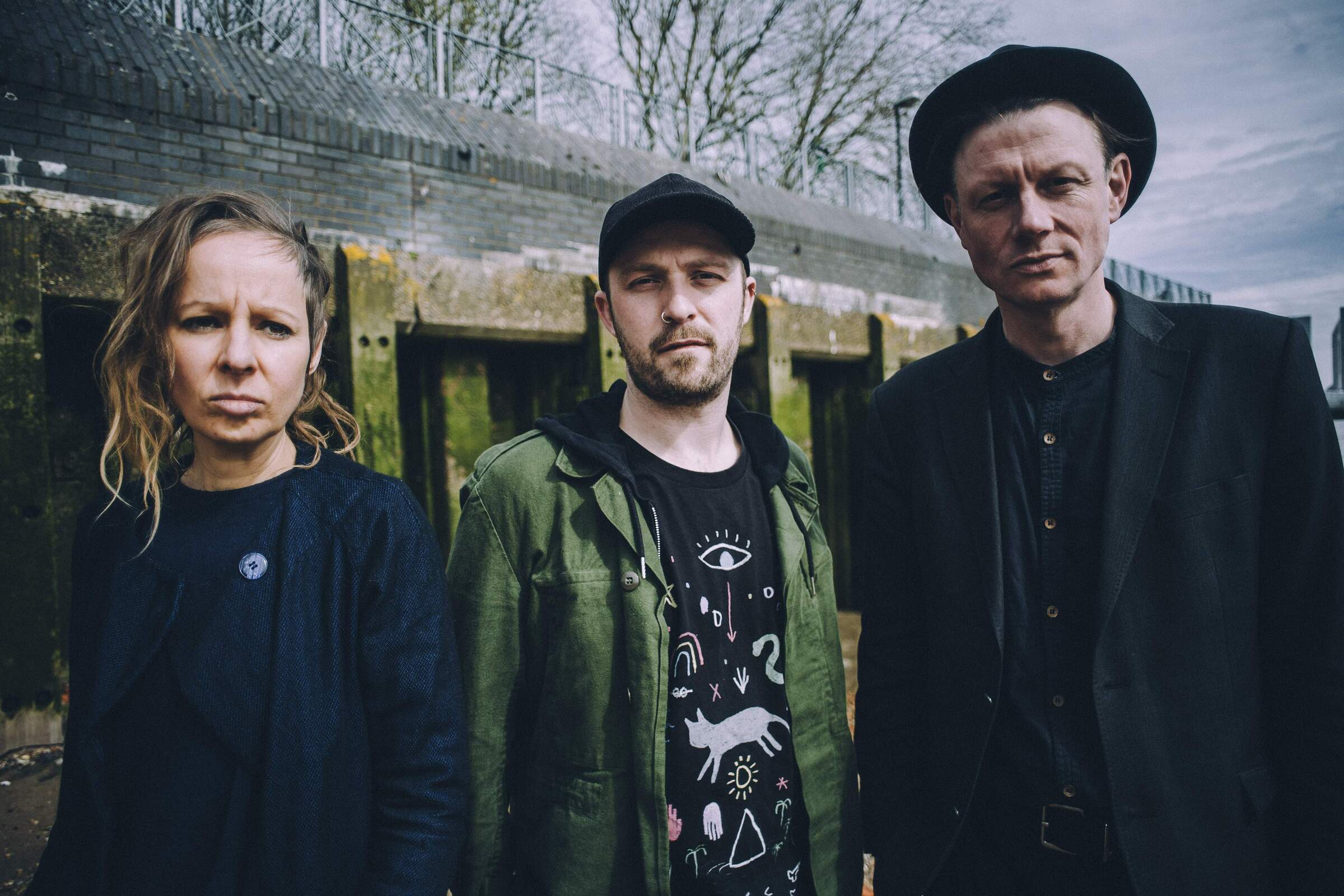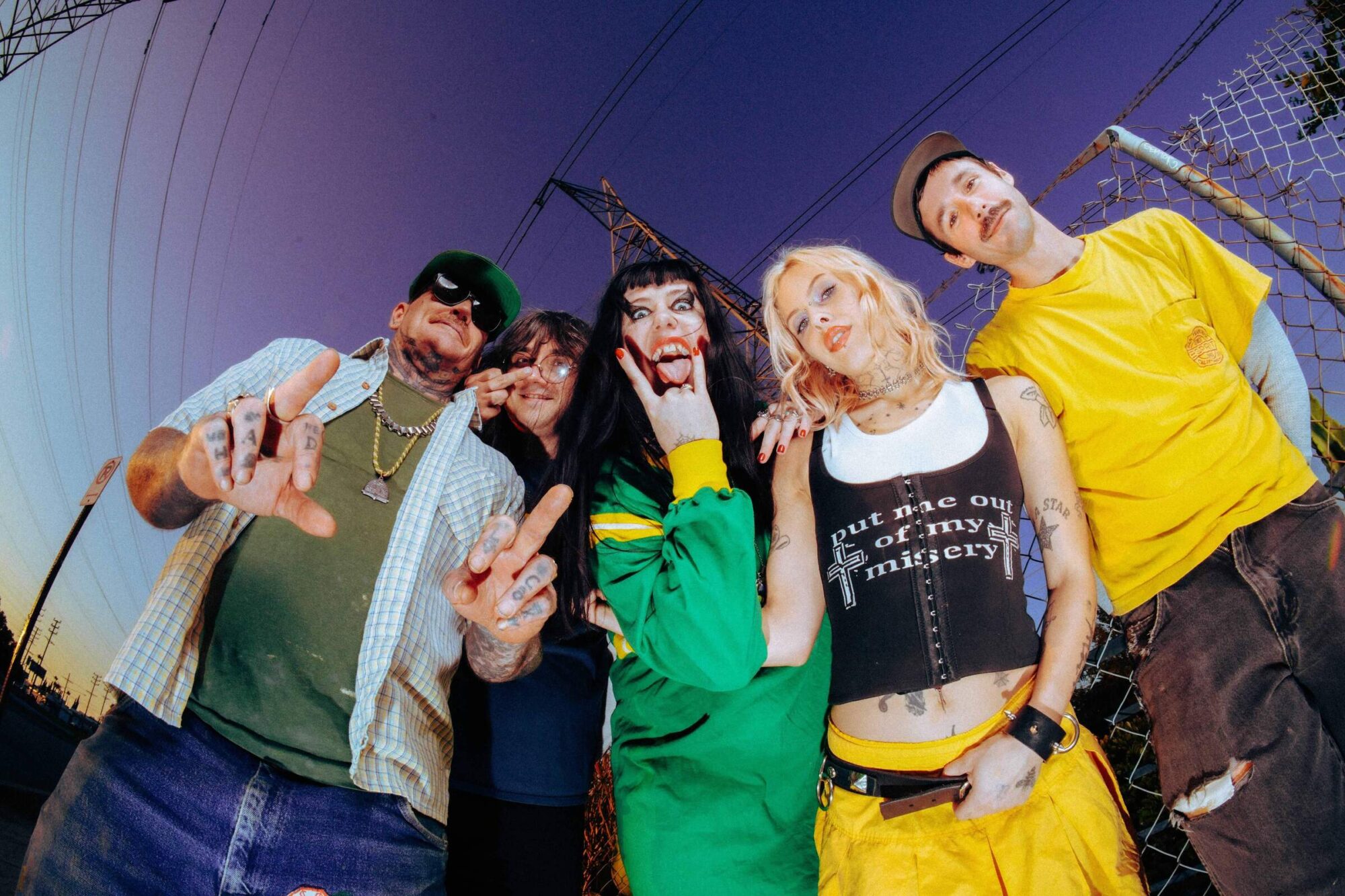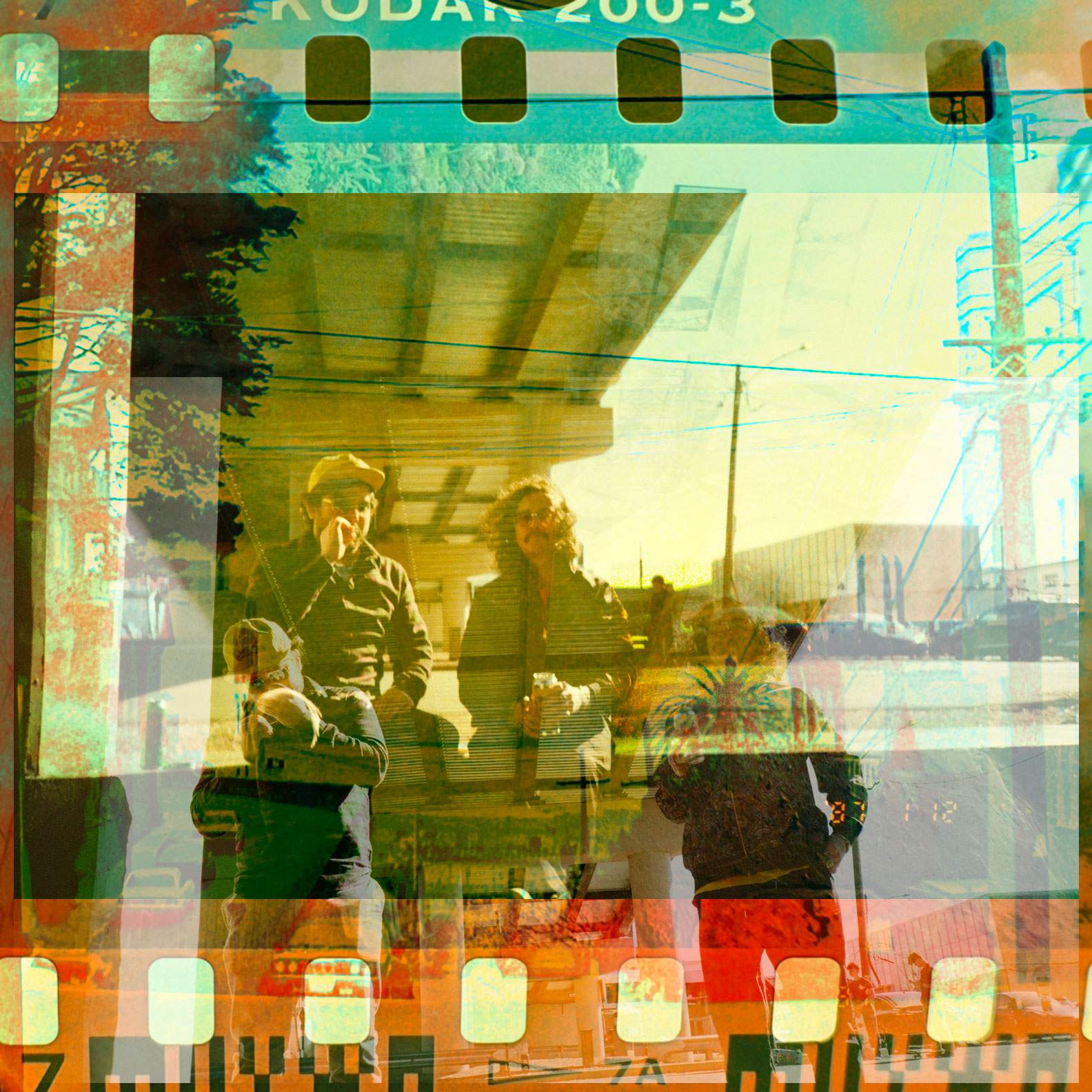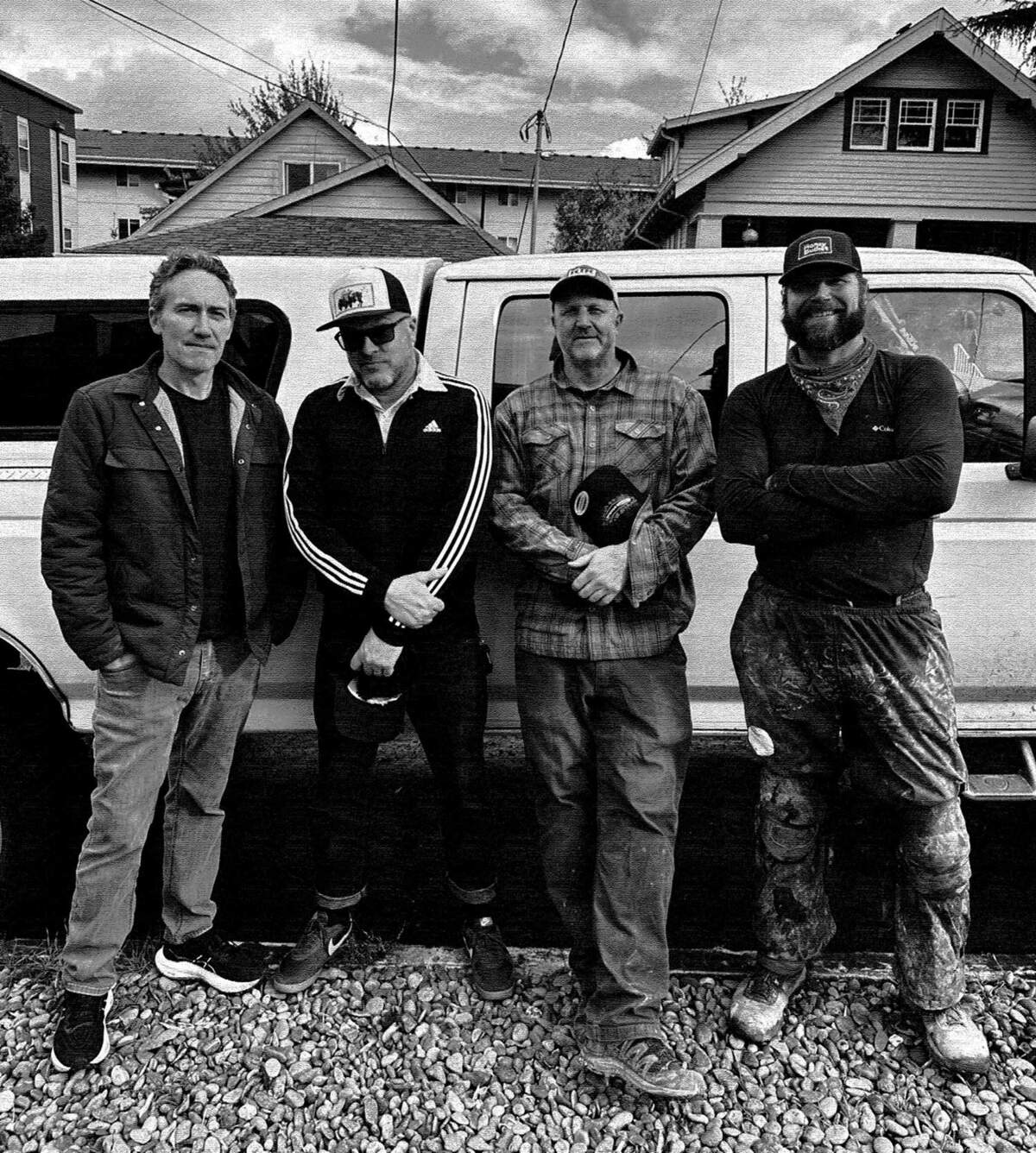Inside the Harbour: An Interview with World Sanguine Report
World Sanguine Report have always existed at a crooked angle to everything around them, but ‘Songs From The Harbour’ feels like a quiet storm finally made flesh.
There’s no fuss, no overwrought poses. Just four players listening intently, letting the tide drag silt and secrets to the surface. Recorded aboard Lightship 95, the Thames practically seeps into the mix. You hear the wood groan. You feel the water rise.
Andrew Plummer has never sung with more clarity or restraint. It’s unnerving at times. Like someone whispering truth after years of riddle. Ruth Goller’s songs are ghostly, sublime, piercing. Glaser and Bourne don’t so much play as pull threads from the air. It all floats and aches and never quite lands where you expect.
This isn’t another entry in some post-whatever canon. It’s a tide-warped postcard from the edge of memory. Something familiar and strange. Songs not stuck in the harbour, but coming from it. Salt in their teeth. Out now via God Unknown Records.
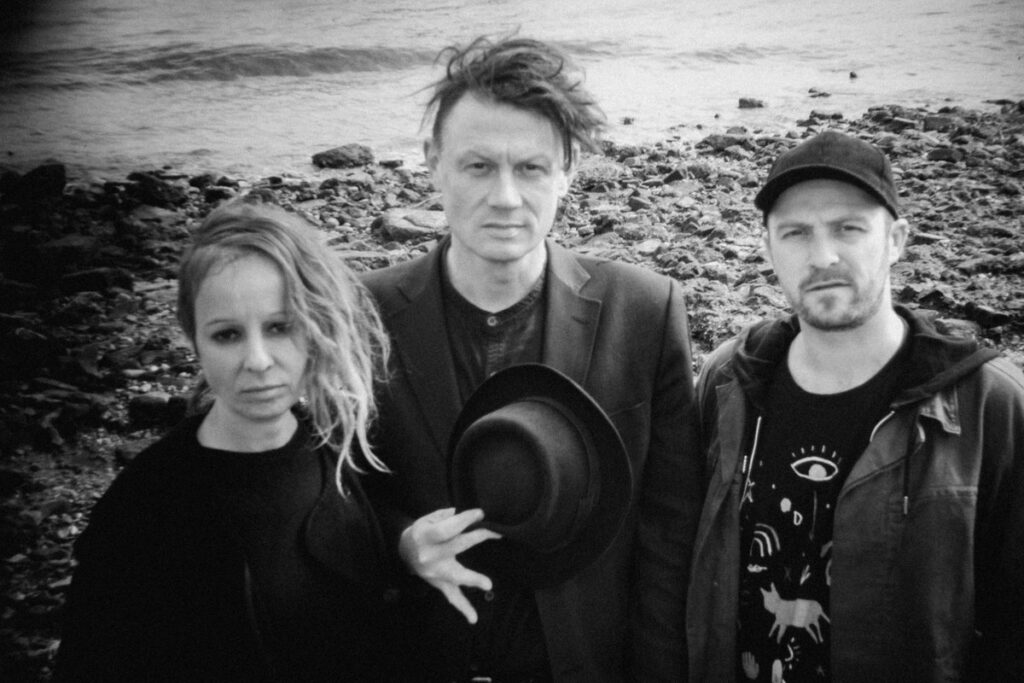
“Water has always held some magical significance to me.”
You describe ‘Songs From The Harbour’ as the album you’ve wanted to make for over twenty years. What finally aligned musically, personally, or even cosmically, to make this the right moment?
Andrew Plummer: This is the album I have wanted to make since being an adult, but perhaps not had the courage, nor skills, nor depth of experience to do so previously. Creating music with the right people has been incredibly important in developing this material. Whilst it has taken trust and encouragement between us all, with this iteration of World Sanguine Report (WSR) the writing, playing, recording process unfurled effortlessly and, by its nature, shined a light on where to go next.
Your past work often leaned into theatricality, yet this record strips things back to a more visceral space. What does immediacy mean to you as a songwriter, and how did it shape the dynamics of this lineup?
We developed this music very closely. Whilst sometimes we might have jotted down ideas to bring into a rehearsal, we created our parts and the music together. A music that can be remembered and performed without scores. A music that is dynamic, demanding a deep level of interaction between the musicians, and that can be explored and developed whilst playing live. That approach would be nearly impossible with the complexity of our previous instrumental material, at least.
Performing solo for the first time, at the Union Chapel, London, November 2019, was an awakening experience for me artistically, which I wanted to subsequently explore. I was surprised by the power of presenting a simpler music in a deeper, fluid yet urgent way, where my voice and words were to the fore. So, long story short, after the various Covid 19 lockdowns, I rehearsed and performed with Will Glaser (drummer who had joined my other band, Snack Family, in 2018), then with Ruth Goller (bassist and vocalist who joined WSR in 2012), and then finally with Matthew Bourne (harmonium, who I have been making music with since 2008).
We have created music that the band and we hope audiences can connect with and experience in a more immediate and direct way.
You recorded the album aboard the Lightship 95 Studios, a floating space with its own echoes. Did the environment shape the compositions, or did the compositions shape how you experienced the environment?
Water has always held some magical significance to me. One of the first songs we played together in this new iteration of WSR was ‘Blue Skin’ – originally penned for ‘Snack Family.’ It is a tune I am very fond of but felt it needed to be revisited for its roots to be exposed like mangroves at low tide.
When developing more pieces, further aquatic themes made their way into the material, and by the time we performed a new set, it was pointed out to us that water was in almost all the songs. It was not necessarily conscious.
I think I decided on the title ‘Songs From The Harbour’ after our first concert of new material in 2022. A couple of months later we had a photoshoot at Folly House Beach on the Isle of Dogs, London. The beach is amazing and wonderfully bleak. The Thames lapping, its tide reassuringly breathing steadily, where once was the Port of London.
After the shoot we went and got drunk and discussed where to record the album, and with everything pointing towards the river and seas, where else could we record but at Lightship 95 Studios, an amazing studio housed in a converted bright red lightship on the Thames?
Being aboard the lightship is quite a trip. The beautiful vessel creaks and moves with the tide. The ship moved us, the ship moved with us. The sound of the Thames could be heard in the studio’s echo chamber housed in the hull of the ship. Serendipitously, I heard it very loudly whilst tracking Starboard so asked the brilliant recording engineer David Holmes to record that also, which you can hear at the beginning of the track.
There’s a strong aquatic presence in this record—both in mood and literal process. Water is both a force of chaos and something that inevitably finds its level. How does this duality manifest in the way you structured these songs?
These pieces are structured to serve the songs. The feeling, the texture is inherent in the songs themselves. Music has a remarkable way of letting you know how it wants to manifest. With this new WSR quartet, there is a deep yearning in the material we write and the way we play, individually and collectively. A yearning, a potential.
The motion from placidity and wild restlessness is continually explored. Not imposed but rather encouraged, accepted, drawn out from the material itself, always with the potential for change.
Your voice has always been a defining feature of WSR, often pushing into the grotesque, the unhinged, the unsettling. Here, there’s a balance of restraint and abandon. Did you consciously recalibrate your vocal approach for this album?
One thing I love about the human voice is that it changes with time and use. My singing voice only really settled to where it is now around finishing ‘Skeleton Blush’ (2012) and then strengthened by recording and touring with ‘Snack Family’ for the rest of the decade.
For ‘Songs From The Harbour,’ mainly I sang with more restraint than I have previously, trying to allow the words to pass through me as if I have not too much to do with it, like breathing.
On this album, I sing just like I would if I were at home and singing to a friend or lover, late at night, accompanying myself on acoustic guitar, at the end of a bottle of wine and a half pack of cigarettes… unashamedly intimate, sometimes full blooded, honest.
Ruth Goller contributes compositions to ‘Songs From The Harbour,’ and you also reinterpret John Lurie’s ‘No Kids.’ What drew you to these pieces, and how did they integrate into the album’s thematic undercurrents?
Ruth is an incredible songwriter whose songs, like mine, explore themes of love, life, death, nature, and the unknown. At a rehearsal she asked, “Can I play you something?” then proceeded to play ‘About Death.’ ‘Spellbound, Will and I sat and listened, tears rolling down our faces. It was devastating and utterly beautiful. We are a band. We all have ownership. We will continue to write songs for each other.
‘The Legendary Marvin Pontiac, Greatest Hits by Marvin Pontiac’ is one of my favourite albums and has stuck close to me since I first heard it around 2005. John Lurie is a true master. The song ‘No Kids’ closes his original version of that first Pontiac album. It is a perfect song in every sense and one which became poignant for me to include a personal rendition of on this album.
“My favourite songs are those which engage me in heart and mind”
The record moves between moments of confession and near-abstraction. Do you view lyrics as fixed narratives, or are they more like sonic textures—shifting in meaning depending on their context in the music?
Lyrics can have explicit meanings or tell unfathomable truths. Like pebbles thrown into a still pool, their weight causing ripples out across the surface and deep down into the depths. Words can be light and playful, meaningless or profound. My favourite songs are those which engage me in heart and mind, tapping into a multitude of previous experiences or sparking imagination. Contrary to what listeners have said to me, my songs are rarely explicitly biographical or about one thing or situation.
Previous descriptions of your music often invoke figures like John Zorn, The Birthday Party, and Turnage. But if you were to describe Songs From The Harbour through a cinematic lens—what kind of film would it be?
Gonna answer this really quickly without overthinking… ‘Songs From The Harbour’ the film would be as if Melancholia era Lars Von Trier made The Deepest Breath or something.
There’s an inherent danger in accessibility for artists who have long worked in avant-garde & experiments. Did you feel any tension in making something more “immediate” while staying true to WSR’s unsettling, unpredictable DNA?
Previous complexities have been stripped out and set aside to create space for interpretation, time feel, and deep musical interaction, guided by and laying bare our words and voices.
Younger me set out to make music that was disorientating and remarkable with its surprising nature, pulling together disparate influences and themes. And whilst our influences, I believe, are still apparent, the intention and how that manifests has been refashioned and reframed. ‘Songs From The Harbour’ is coherent and, if any at all, tells of a different kind of story.
Your work often exists in a liminal space between jazz, rock, and something more uncategorizable. Do you see WSR as part of any tradition, or do you consider the project an island unto itself?
Perhaps all art and music has a lineage. Nothing human exists as an island unto itself. WSR is borne out of our love for the avant garde, rock, jazz, and blues, and broader folk traditions. ‘Songs From The Harbour’ is an honest and human album that we hope will connect with people in a deeper way than how our previous albums perhaps have.
Would it be possible to draw any parallels to your previous two albums? On that note, could you share how the World Sanguine Report originally got together and what was the main idea behind it? Are you still on the same concept path today with the release of your third album?
For the previous WSR albums, I enlisted some of my favourite and brilliant young players from the exciting and fruitful London and Leeds jazz and improv scenes to sound my then genre defying compositions. ‘Third One Rises’ was a wild experiment from start to finish, in every way it was written, recorded, and subsequently performed. ‘Skeleton Blush’ is the epitome of my then approach. Perhaps remarkably, these albums were painstakingly recorded at my home studio, mainly one song and one instrument at a time. They took years and years to write and edit and rewrite and re edit and record and rewrite and edit and write and record and mix and edit and and and… until they were done. It was maddening.
This album was developed very differently, collaboratively and collectively in rehearsals. Developed from our shared and differing life and musical experiences, this music is about that interaction.
Much of your previous work had an urban paranoia, a kind of nocturnal, cabaret-meets-apocalypse feel. This record has a different kind of darkness. Do you think your relationship to “darkness” as an artistic force has changed?
Not sure why, but I have always loved music that has a melancholic texture to it. I have memories as a child in the early 80s, listening to the Radio 1 Chart Show on Sunday evenings and sometimes becoming tearful listening to 80s pop. Not sure if it is darkness, but I like music that has a depth, that moves me.
There’s an idea in jazz and free music that true spontaneity is only possible when musicians deeply trust each other. What was the process of developing that kind of trust within this iteration of WSR?
Matthew, Ruth, and Will are very deep, brilliant humans. Deep thinkers and musicians, sensitive, nuanced, wildly experienced. WSR has a vulnerability, yet strength and resilience to it, and this comes from a profound love and friendship shared between all of us. We are lucky to have found one another, to be on this journey whilst it lasts, side by side.
The Wire called your work “warped vaudeville,” while Jazzwise connects you to figures like Satchmo and Gallon Drunk. When you listen back to Songs From The Harbour, do you hear a lineage, or do you feel like you’ve slipped into a different bloodstream entirely?
I kinda feel I have answered this one already in terms of its lineage. But I guess I could tell you that leading up to developing this iteration of WSR, I was listening a lot to Swans and Angels of Light, Bill Callahan, Richard Dawson, Keeley Forsyth, Lankum. All remarkable music. How could you not be changed in some way after hearing?
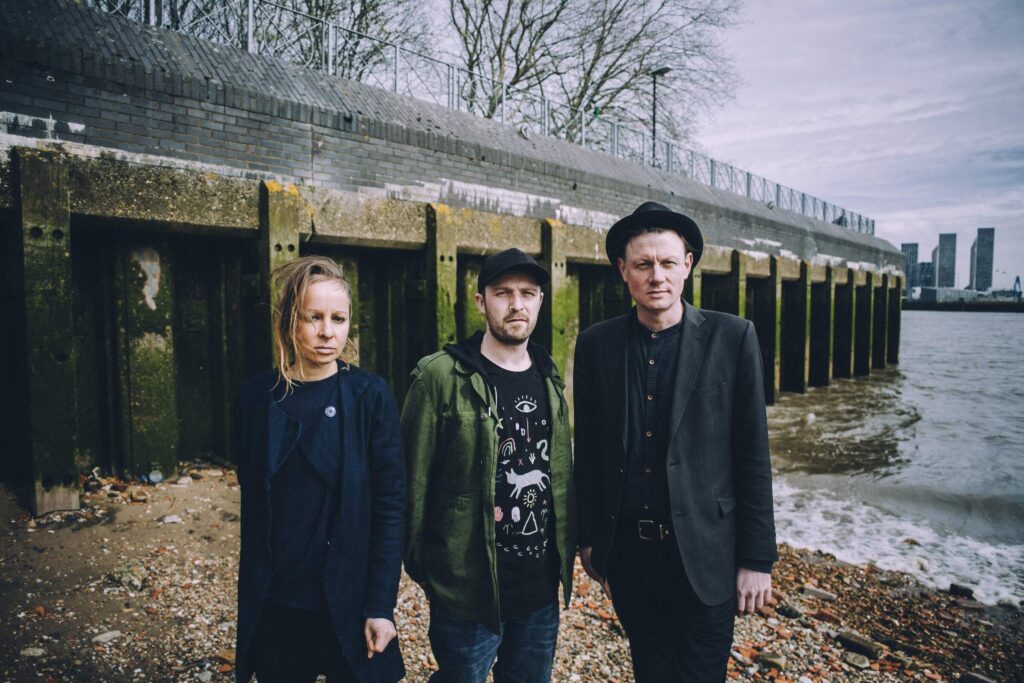
If this album were a farewell to one chapter of WSR and the beginning of another, what would you want its lasting emotional residue to be?
WSR tips its hat to previous albums, winks knowingly, sounds its horn, and then turns starboard, heading out to who knows where. I am grateful that we spent some time in port. We hope you enjoy ‘Songs From The Harbour’ and we look forward to sharing our future adventures with you, but for now… we are World Sanguine Report and this is our news.
Klemen Breznikar
World Sanguine Report Facebook / Instagram / Bandcamp
God Unknown Records Facebook / Instagram / YouTube / Bandcamp

